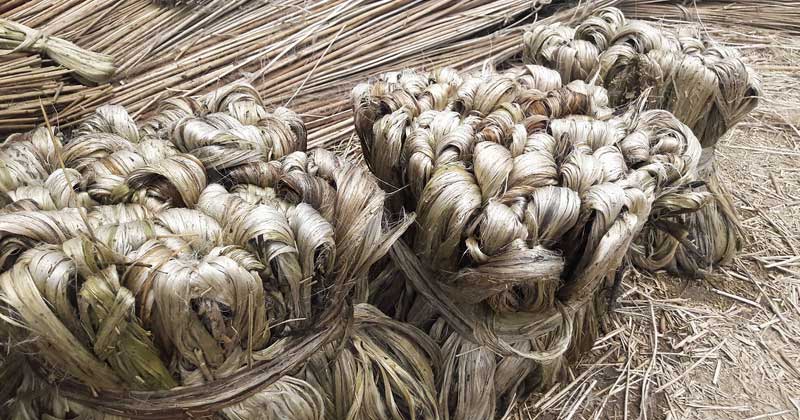For a long time, the jute had a rather musty image. In the meantime, however, natural fiber has become increasingly popular as an environmentally friendly material.
The term jute originally refers to the bast fiber of the Indian corchorus tree, which belongs to the linden family. In the meantime, however, jute is used as a collective name for the fiber of various plants. In humid, hot, tropical climates they grow up to four meters high. Its exterior is reminiscent of a huge herb. The jute fibers are made from its stems. To date, around eighty percent of the jute used worldwide is grown in India. It is also manufactured in China, Algeria and Brazil, among others.
Jute manufacturing
After the plant has been torn out, the jute fiber is made from the bast fiber, the so-called roasting. After roasting, the fibers are washed and dried. By the way, jute is not only the most important natural fiber after cotton, but also the cheapest vegetable fiber of all.
What do you need jute for?

Above all, the typical jute sacks are made from the jute fiber, but also carpets, curtains and other home textiles such as covers for upholstered furniture. What is less known is that jute is also an important component of linoleum and used as a carrier material. The leaves are also eaten as vegetables in some countries.
In times when ecological awareness is trending, jute in the form of tote bags and pouches is also becoming increasingly popular as an environmentally friendly alternative to handbags. With funny prints, jute now accompanies fashion-conscious young people not only on a shopping spree but also in the pub and parties. In addition to the ecologically correct material, the jute bag impresses with its low price.
Jute instead of plastic?
What is it about the call for more ecological consumer behavior? The fact that it is a relatively quickly renewable raw material speaks for jute. In contrast to plastic, jute rots after some time, so it is fully biodegradable. Along with that it is grown in the fields and does not hurt the nature like plastic.

Jute may even be able to help save lives in the future. In the earthquake-prone areas, whose residents lack the money for expensive earthquake-proof buildings, jute bandages will soon make houses earthquake resistant. Architects have successfully carried out tests in which the walls of conventional houses were covered with wallpaper made from natural fibers such as jute and hemp. These bandages significantly increased the stability of the walls. This would not only save human lives, but also contribute to environmental protection. So far, such bandages have been made from carbon fibers, which are also much more expensive. In this way, poor people could optimally protect themselves from earthquakes.
Along with that, jute sacks can be used to convert the desert back into fertile farmland. Over 250 million people around the world are already threatened by desertification, which deprives them of their livelihood. The jute bags are filled with a mixture of compost, sand and a hydrogel that can store hundreds of times their own weight in water and other materials.
Also Read – How is Gold Formed? Why is it Scarce in Nature? Let’s find out.
Jute was used in the past for various purposes but its usage was limited as carry bags, logistics and decorative items. However, jute is going to play a crucial role in creating a commercially viable and nature friendly future. The true meaning of jute called as the golden fibre is yet to be explored.


